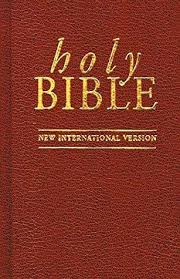In a message dated 3/17/05 8:29:43 PM, dibussi@msn.com writes:
AFRICAN WRITING: WHY WE NEITHER READ NOR WRITE
I went to a book launch last week. It was held at a bookshop I patronize. The author is a lady who lived in Kenyan during her early years. She is billed as a Kenyan, but she is Caucasian and she speaks with an American accent, having spent her adult life in the US.
The crowd was mainly white expatriates. Few African expatriates were there. I do not know if it is because they were not informed or not interested. But I think that even if they were informed, not many would have pitched up.
This is the story of Africa. It is possible that because we are basically an oral tradition, we are still making the transition between acquiring knowledge and obtaining entertainment from oral and visual rather than written sources. But it is taking a long time.
Books are not a priority. I wonder why. I belong to an online forum where there was a recent argument about the fact that Africans neither read nor write.
There are as many reasons for this as there are Africans, perhaps. But amongst the most common is this: they do not read because they are too busy surviving. They do not write because there is no time or motivation to write.
There are relatively few publishing houses in Africa, and the few there are will be more likely to print a very limited copy of books, with poor typesetting and printing quality. I remember a conversation a decade or so ago with a young reporter. He proudly showed me the newspaper he worked for, and I observed to him that it was a good effort, but they had spelled too many of the words backwards. Needless to say, the conversation endued abruptly. I have become more tactful with age, but the fact remains that African publishers do not have the resources to produce good-quality books and market them successfully. Usually it starts with a visionary or a self-deluding enthusiast or an indefatigable self-promoter having an idea for a publishing company.
Sometimes it is just an unpublished writer tired of waiting. This person might have sufficient mastery of the language for non-publishing purposes, but he/she will do the copy-editing and proofreading himself/herself because he/she cannot afford an editor or a proof-reader. The result is what we see in our press today. African writers cannot live on their writing. They do not have enough readers, when they do manage to get published at all. They do not have access to grants that many Western authors. They do not have the huge and fairly literate population of India, say, to write for. There is also the problem of thieving outfits reprinting copies of books and selling them for a profit that the writer and publisher will never see. This is very common in Nigeria, whence I have seen badly printed, badly bound copies of Robert Ludlum’s novels that fritter away in your hands as you turn the pages.
Western publishing houses hesitate to take on writers of African fiction because they do not have a huge market for Africans who write about Africans. How many Europeans want to read about life in an African village or urban poverty from an African perspective? The success of The No. 1 Ladies’ Detective Agency (and its sequel novels) is a notable exception, but it must be pointed out that this is a book by a British professor of law, who lived in Africa for some time. It is an excellent book, and I shall review it for this web log in due course, but it suffers from the strange affliction of much of writing about Africa: it is written by a non-African.
After independence, the African Writers Series (AWS), a Heinemann imprint, published the works of many Africans, famously including Chinua Achebe and others. Though one lauds the initiative, one must say that some of the books that were published at that time left a lot to be desired. It seems difficult now to imagine why Joseph Ngongwikuo of Cameroon and Flora Nwapa of Nigeria to name only two were published. Their books certainly leave a lot to be desired in terms of literary merit. I suppose it was important to encourage new talent then. But AWS has fallen on hard times, and their website is a journey into the past, a twilight zone reminiscent of the heady days of early post-independence exuberance.
So what can we do about this? We can write, but who will publish us? We can publish, but who will buy our books? Our books might be bought, but who will read them? We have many rich business people, but the publishing concerns that have sprung up are often a labour of love by people, who have something to say, who have a place for other people to say what they wish to say. They are generally not business people. What the African publishing industry needs is a combination of love of the written word and business acumen to bring these words to the reader, and make him want to read them.
In the meantime, my magnum opus shall moulder quietly in my desk drawer.
***************************************************
Dibussi:
This is a well-written article. I have no doubt everybody understands what you are talking about and what you have written is an universal observation, though you omitted one important aspect of why Africans hardly support their own writers – the crab mentality of our people. We are jealous of the success of our own people. Then again, there is the problem of ethnicity.
To solve some of these problems, some of us as writers, have come to understand that to be successful you have to write a book with universal appeal.
The success of my book, “Capitalist Nigger: The Road to Success,” is due to its universal appeal, attaining the No.1 bestseller list in South Africa for four months. Moreover, it is an extremely well-produced book (even if you don’t want to buy it, just look at it and see its beauty comparable to any main-stream published book). You remember the computer language, gigo, garbage in garbage out, what you put in is what you get back.
Hopefully, with this kind of chastising, maybe our people can spend $100 a year to patronize African writers. That is not too much to ask. Chika Onyeani ps: Timbuktu Publishers is our publishing house. I am proud of our work.
AFRICAN WRITING: WHY WE NEITHER READ NOR WRITE
I went to a book launch last week. It was held at a bookshop I patronize. The author is a lady who lived in Kenyan during her early years. She is billed as a Kenyan, but she is Caucasian and she speaks with an American accent, having spent her adult life in the US.
The crowd was mainly white expatriates. Few African expatriates were there. I do not know if it is because they were not informed or not interested. But I think that even if they were informed, not many would have pitched up.
This is the story of Africa. It is possible that because we are basically an oral tradition, we are still making the transition between acquiring knowledge and obtaining entertainment from oral and visual rather than written sources. But it is taking a long time.
Books are not a priority. I wonder why. I belong to an online forum where there was a recent argument about the fact that Africans neither read nor write.
There are as many reasons for this as there are Africans, perhaps. But amongst the most common is this: they do not read because they are too busy surviving. They do not write because there is no time or motivation to write.
There are relatively few publishing houses in Africa, and the few there are will be more likely to print a very limited copy of books, with poor typesetting and printing quality. I remember a conversation a decade or so ago with a young reporter. He proudly showed me the newspaper he worked for, and I observed to him that it was a good effort, but they had spelled too many of the words backwards. Needless to say, the conversation endued abruptly. I have become more tactful with age, but the fact remains that African publishers do not have the resources to produce good-quality books and market them successfully. Usually it starts with a visionary or a self-deluding enthusiast or an indefatigable self-promoter having an idea for a publishing company.
Sometimes it is just an unpublished writer tired of waiting. This person might have sufficient mastery of the language for non-publishing purposes, but he/she will do the copy-editing and proofreading himself/herself because he/she cannot afford an editor or a proof-reader. The result is what we see in our press today. African writers cannot live on their writing. They do not have enough readers, when they do manage to get published at all. They do not have access to grants that many Western authors. They do not have the huge and fairly literate population of India, say, to write for. There is also the problem of thieving outfits reprinting copies of books and selling them for a profit that the writer and publisher will never see. This is very common in Nigeria, whence I have seen badly printed, badly bound copies of Robert Ludlum’s novels that fritter away in your hands as you turn the pages.
Western publishing houses hesitate to take on writers of African fiction because they do not have a huge market for Africans who write about Africans. How many Europeans want to read about life in an African village or urban poverty from an African perspective? The success of The No. 1 Ladies’ Detective Agency (and its sequel novels) is a notable exception, but it must be pointed out that this is a book by a British professor of law, who lived in Africa for some time. It is an excellent book, and I shall review it for this web log in due course, but it suffers from the strange affliction of much of writing about Africa: it is written by a non-African.
After independence, the African Writers Series (AWS), a Heinemann imprint, published the works of many Africans, famously including Chinua Achebe and others. Though one lauds the initiative, one must say that some of the books that were published at that time left a lot to be desired. It seems difficult now to imagine why Joseph Ngongwikuo of Cameroon and Flora Nwapa of Nigeria to name only two were published. Their books certainly leave a lot to be desired in terms of literary merit. I suppose it was important to encourage new talent then. But AWS has fallen on hard times, and their website is a journey into the past, a twilight zone reminiscent of the heady days of early post-independence exuberance.
So what can we do about this? We can write, but who will publish us? We can publish, but who will buy our books? Our books might be bought, but who will read them? We have many rich business people, but the publishing concerns that have sprung up are often a labour of love by people, who have something to say, who have a place for other people to say what they wish to say. They are generally not business people. What the African publishing industry needs is a combination of love of the written word and business acumen to bring these words to the reader, and make him want to read them.
In the meantime, my magnum opus shall moulder quietly in my desk drawer.
***************************************************
Dibussi:
This is a well-written article. I have no doubt everybody understands what you are talking about and what you have written is an universal observation, though you omitted one important aspect of why Africans hardly support their own writers – the crab mentality of our people. We are jealous of the success of our own people. Then again, there is the problem of ethnicity.
To solve some of these problems, some of us as writers, have come to understand that to be successful you have to write a book with universal appeal.
The success of my book, “Capitalist Nigger: The Road to Success,” is due to its universal appeal, attaining the No.1 bestseller list in South Africa for four months. Moreover, it is an extremely well-produced book (even if you don’t want to buy it, just look at it and see its beauty comparable to any main-stream published book). You remember the computer language, gigo, garbage in garbage out, what you put in is what you get back.
Hopefully, with this kind of chastising, maybe our people can spend $100 a year to patronize African writers. That is not too much to ask. Chika Onyeani ps: Timbuktu Publishers is our publishing house. I am proud of our work.





